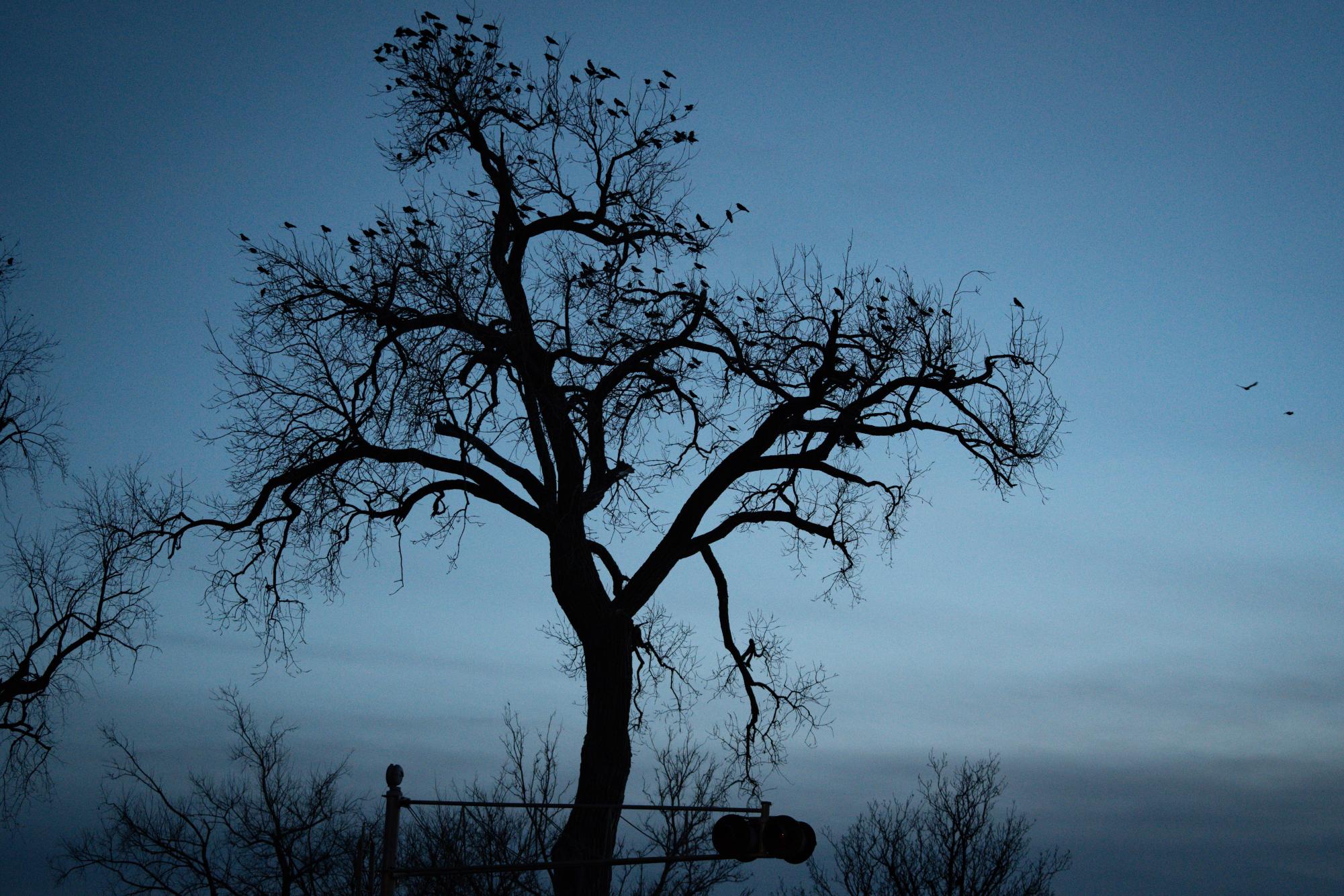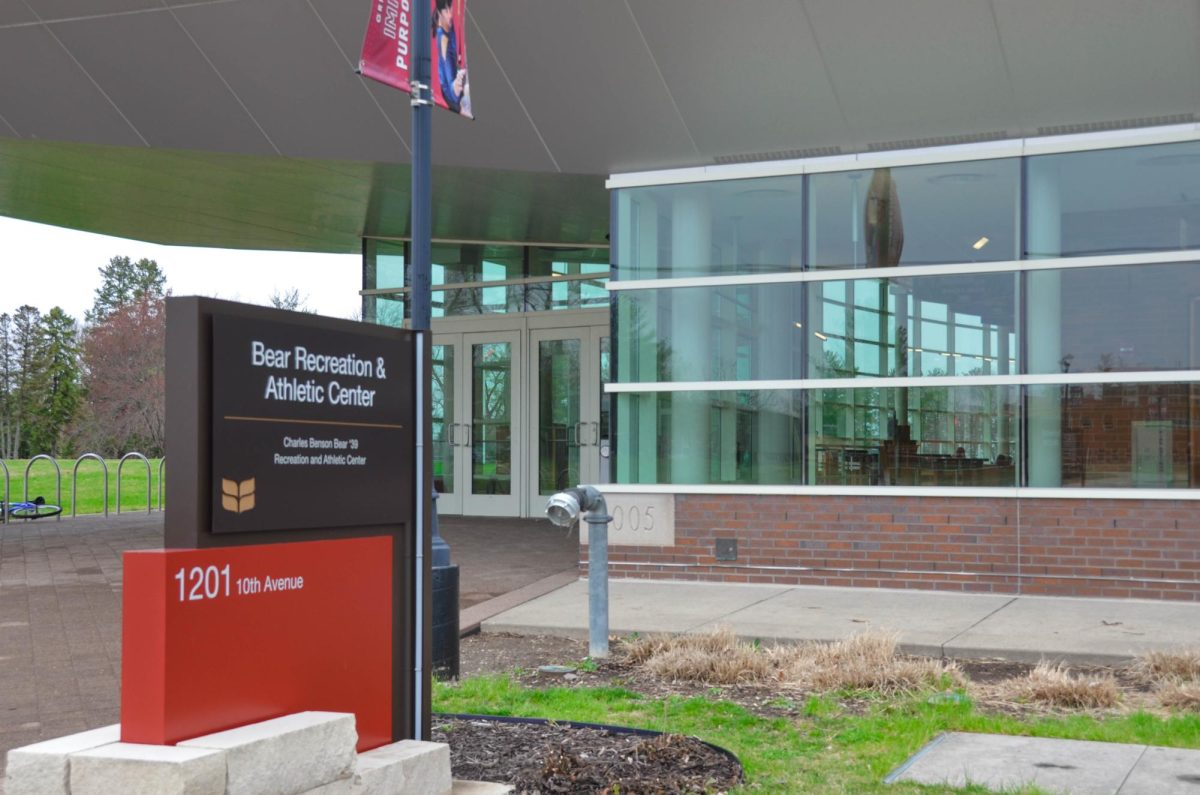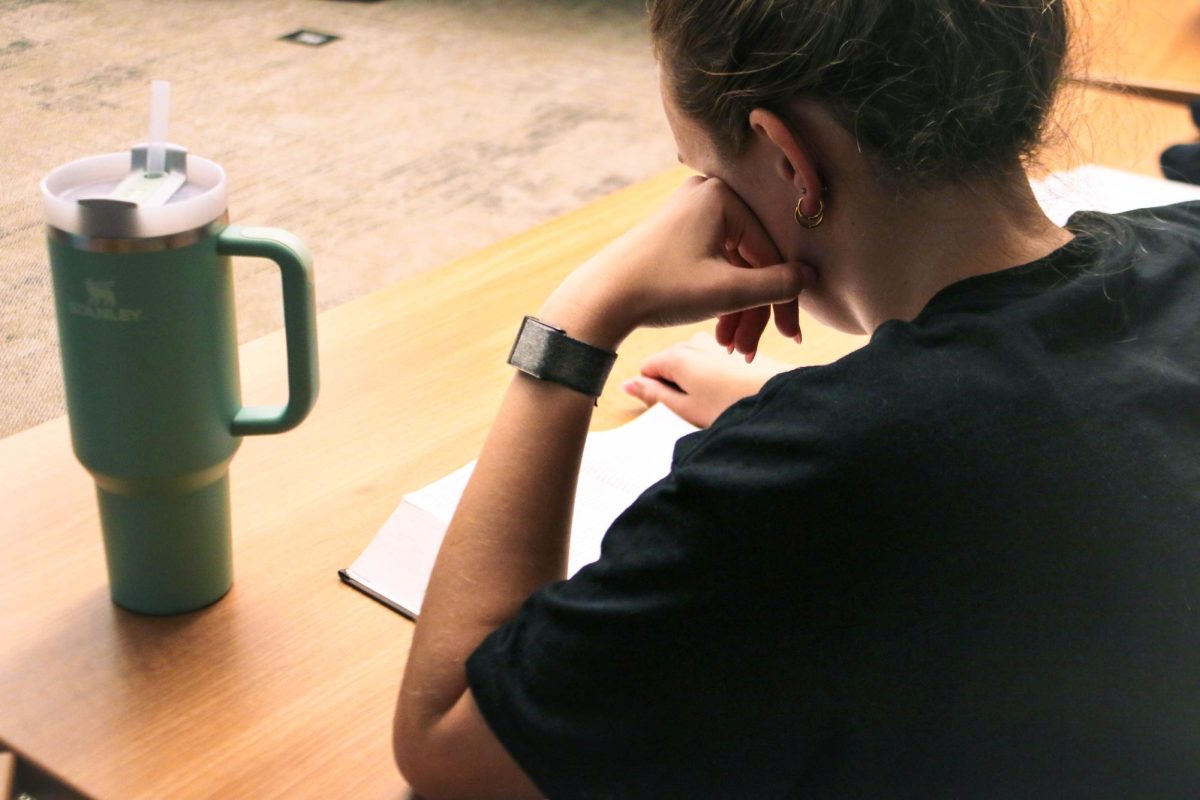Long considered a sinister symbol of malice and impending doom, what, then, do we make of the large, boisterous murder of crows that calls Grinnell home? Despite student concerns of a Corvid curse, faculty, staff and students with crow experience have differing opinions, weighing in on whether they see the crows as a natural feature of central Iowa wildlife, or a Grinnell College curse.
Maria Kazembe `26 cites the crows as the reason she no longer goes to the library. She spoke of walking there, already a bit nauseous, and coming across a large amount of bird droppings. “I smelt a smell so foul, it was the birds of course, and I almost vomited,” she said. “And it was terrible.”
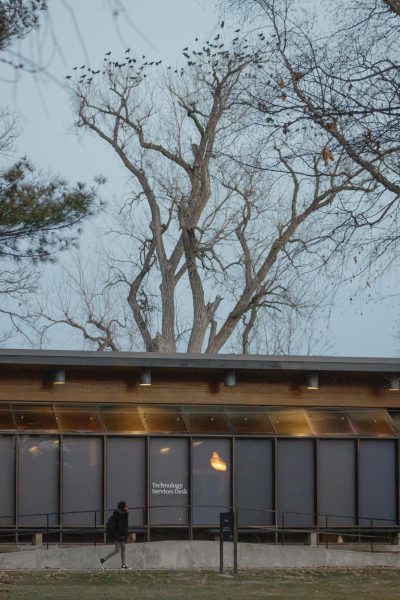
While Kazembe goes out of her way to avoid the crows after one unsavory encounter, others find ways to fight back. Peter Versh `25 described a deep-seated hatred for the crows after a night of sleep interrupted by their squawking. Versh said that while he was staying in Grinnell House due to having COVID-19 his freshman year, the crows made a ruckus outside of his window. He said that, rather than forfeit sleep, he screamed at them out his window, and now, whenever he passes them on campus, he stomps and makes noise to scare them. “I hope they know how much I hate them,” he said.
When asked if he believed that the crows indicated an ill omen upon campus, Versh noted that their choice of location contributed heavily to his assessment. He said, “I think in particular that they’re based in an important intersection of campus is pretty telling.”
Some individuals well-versed in bird behavior view the crows with less trepidation. Anika Jane Beamer `22 is a science writing fellow at the College and has published a piece about the flock of turkey vultures that also reside on campus. Beamer stated that the reason the crows move around the town of Grinnell and the campus is that they are in competition with the turkey vultures throughout most of the year, because both species eat similar things.
Additionally, Liz Queathem, professor of biology, said that the crows are native to central Iowa. She also said that a possible reason that the crows roost in such large numbers at night is that it is safer for them, but they disperse during the day — which perhaps explains the increase in cawing and flapping over campus in the early evening.
When speaking about how loud the crows are, Queathem said that crows have different calls to mean different things. “But to the human ear they mostly just sound like ‘caw caw,’” she said. She continued to explain that the crows use these different calls to warn each other, to point out food, and to call each other over. “It’s not about us at all,” she said.
Queathem also spoke to the crows’ intelligence — she said that crows can count and remember human faces, and even described forming a sort of friendship with the crows at their house. She describes repeatedly leaving hard boiled eggs for the crows, and eventually the crows let her get close to them while they ate. “It was a family of four,” Queathem said.
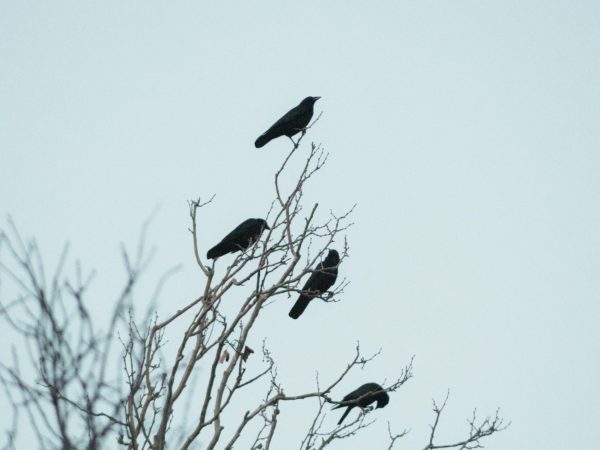
Both Beamer and Queathem were unequivocal in saying whether they believe Grinnell is cursed — definitely not. “This is normal campus wildlife,” Beamer said. Queathem explains that the trope of crows as a symbol of death results from their eating patterns — crows tend to feed on human corpses that are left out in the open. “Turkey vultures similarly, but for some reason they didn’t take the PR hit that crows have taken,” she said.
Both Queathem and Beamer stated that the crows have probably been here as long as they have. Regardless of if they are here due to witchcraft or just plain science, the crows seem to be a part of campus life that’s here to stay.
